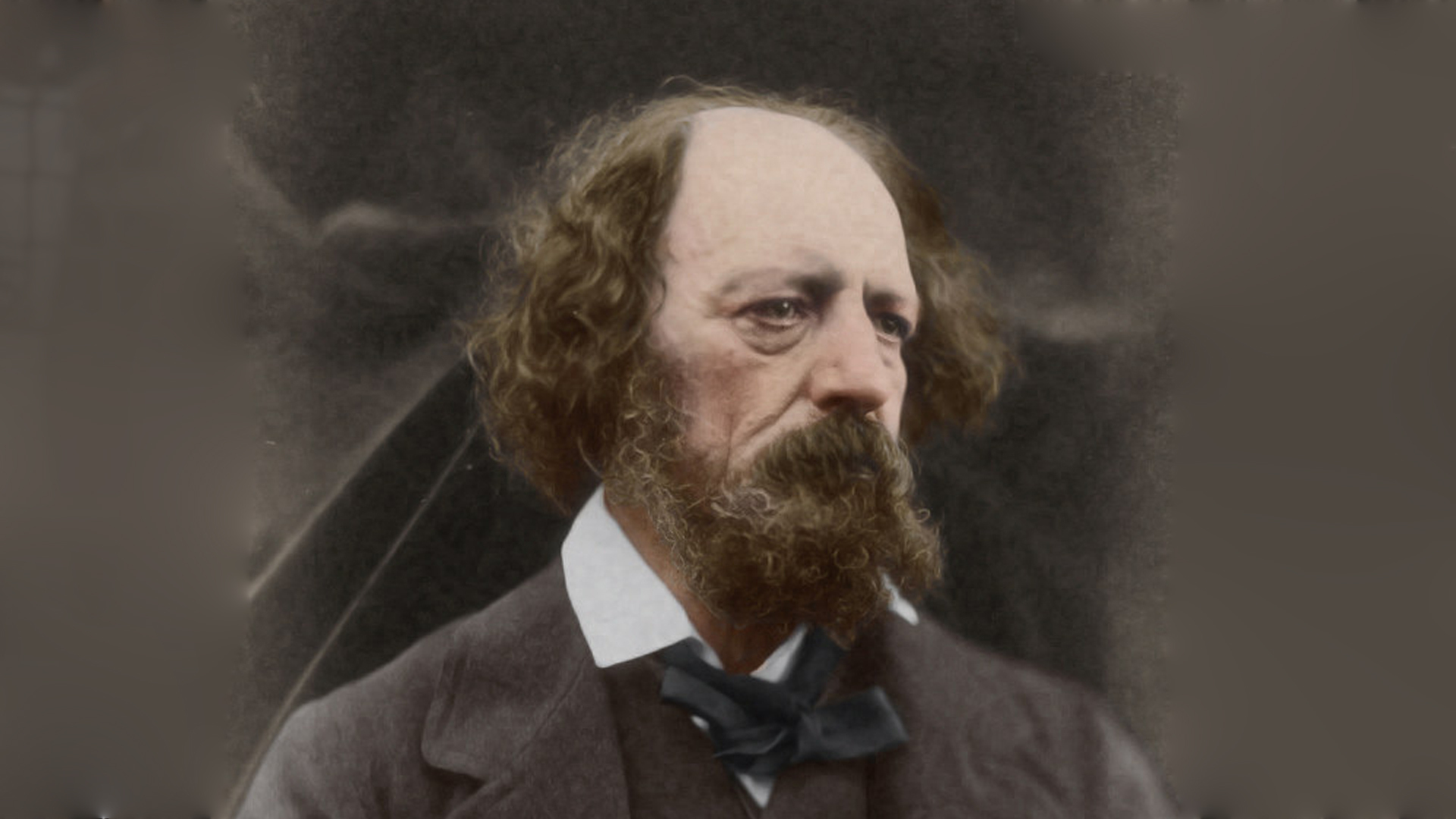The Flower Comments
Once in a golden hour
I cast to earth a seed.
Up there came a flower,
The people said, a weed.
...
Read full text
How can I interpret this poem? I have no words in the dictionary of heart. Not exaggerating, this is a timeless piece to be appreciated by all in all time, in all ages.
Excellent poem with a great message for whoever that can read, interprete and understand it! The rhyming is great too.
This poem contains several biblical allusions, which suggested to my mind a simple (some might say simplistic) interpretation that illuminates many of the obscurities in this poem. The strongest biblical allusion is almost a direct quotation from Habukkuk 2: 2 (He that runs may read) . Tennyson appears to be saying that his little fable is easy to understand for those who care to take the time. His reference to 'thieves from o'er the wall' may be a reference to John 10: 1, and his references to sowing and seeds may have been inspired by Jesus' parable of the sower (Matthew 13) . I interpret the flower to represent Jesus, and the seed his message. Once in a golden hour I cast to earth a seed “When the fullness of time was come, God sent forth his son” (Galatians 4: 4) Up there came a flower Jesus was the embodiment of spiritual beauty. “And the word was made flesh, and dwelt among us, full of grace and truth “(John 1: 14) . The people said, a weed Jesus was rejected by his own people. He came unto his own, and his own received him not (John 1: 14) To and fro they went Thro my Garden bower And muttering discontent Cursed me and my flower According to Jesus, he was rejected by his people because they also rejected God. “He that hateth me hateth my Father also” (John 15: 23) . Then it grew so tall It wore a crown of light Jesus said “I am the light of the word” (John 8: 12) . But thieves from o’er the wall Stole the seed by night This alludes to John 10: 1, where the ‘thieves from o’er the wall’ are the corrupt Jewish leaders of the time (John 10: 1) . But this cannot be what Tennyson means, because the same thieves are later responsible by spreading the seed hither and thither. Perhaps he has corrupt Christian leaders in mind, who although they had helped spread the seed, yet were not true shepherds. Another possibility is that he is alluding to the accusations that Jesus disciples stole his body by night. Most can raise the flowers now, for all have got the seed. Most people in Tennyson’s time had the capacity ‘raise the flower’ that is, develop in their own lives the Christian virtues of ‘grace and truth’ shown perfectly in Jesus. They all had the seed – that is, they could all read the Bible through which the message was spread. Some are pretty enough, and some are poor indeed Some Christians lead good lives that are in harmony with what they profess. Others are only the palest imitations of the man the claim to follow. And now again the people call it but a weed. In Tennyson’s time there was a growing discontent with Christianity. This may or Many readers will no doubt prefer a more open, less concrete way of looking at the poem. This is merely my guess at what Tennyson may have meant based on the preponderance of biblical allusions within the poem.
Harrington, what a great interpretation! You clearly understood the poem.
Spendid is the flower- so is this splendid poem of Tennyson - the great! Wonderful poem!
Read my little fable: He that runs may read. Most can raise the flowers now, For all have got the seed.-Wonderful poem
Beautiful poem with a hidden message.Liked the flow and rhyming. So nice.
A beautifully envisioned poem with deep meaning and praising the marvels of nature at the same time. Thanks for sharing this great poem here.
this poem must hold meaning other than the surface affords
it is a poem about wisdom. The seed of the flower is the seed for wisdom. great poem.
Me too, Staci He that runs may read? What? ? ? I'm getting daft image of paper boy trying to run and read newspaper at the same time!
I was wondering if anyone had any insights on the line 'He that runs may read'?
This is quoting from Habbakuk 2: 2 And the LORD answered me, and said, Write the vision, and make it plain upon tables, that he may run that readeth it Tennyson appears to be saying that his fable should be understand for those making the effort.

A wonderful creation, very metaphoric